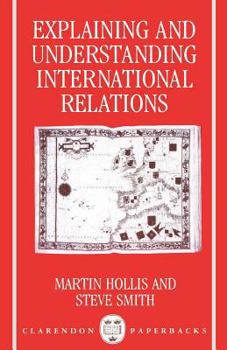Explaining and Understanding International Relations
Select Format
Select Condition 
Book Overview
A collaboration between a philosopher and an international relations scholar, this work examines the philosophical issues that underlie the theory of international relations. Part I focuses on the dominant theories of Idealism, Realism, and Behavioralism, and Part II examines the international system, the state, bureaucracies, and the individual--four factors commonly assumed to account for international behavior. The authors conclude with a summary of the links between the two forms of analysis and an open-ended assessment of their relative merits which will stimulate further discussion.
Format:Paperback
Language:English
ISBN:0198275897
ISBN13:9780198275893
Release Date:August 1991
Publisher:OUP Oxford
Length:236 Pages
Weight:0.78 lbs.
Dimensions:0.5" x 5.5" x 8.5"
Customer Reviews
1 rating
A great teaching tool
Published by Thriftbooks.com User , 23 years ago
This review by a philospher of science and an International Relations theorist of the range of debates in International Relations theory is one of the more useful advanced teaching tools in the discipline. What distinguingshes this book from the usual run-of-the-mill IR theory textbook is the authors' concern to locate IR theory within the broader questions of philosophy of the sciences. The conclusions will certainly not please those who believe in positivism, and provides one of the most convincing critiques of positivist approaches in IR. This is a book for those who take theory serious, and are prepared to put some thought into their reading, and who believe that epistemology and ontology are important. I have used this book in a postgraduate IR theory course virtually since it was published, and year after year my students find it the most useful and interesting piece of reading in the course





